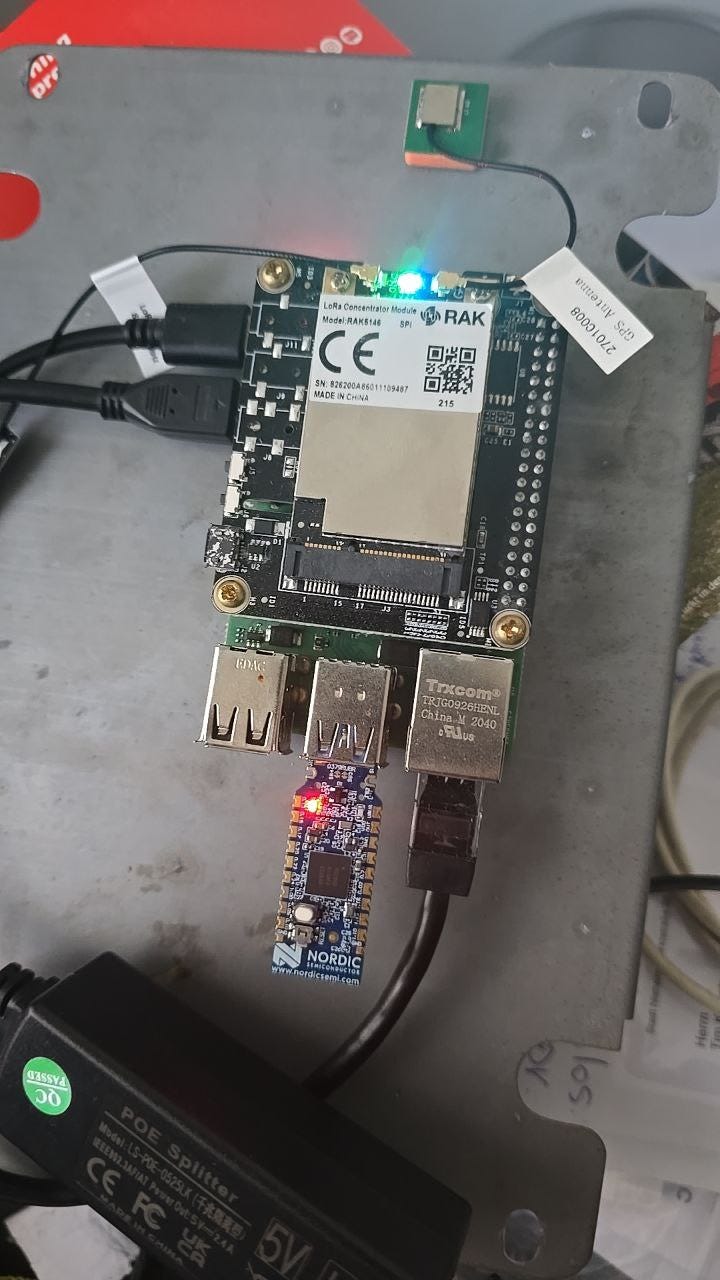Latest DePIN News

2 months ago
iExec's Decentralized Confidential Computing: A Solution for Web3 Privacy Challenges
The Web3 revolution has brought forth promises of enhanced ownership, transparency, and security for users. However, a significant challenge remains: the issue of data privacy and security. Blockchain technology, while offering pseudonymity, records every transaction on a public ledger, which means that true privacy is elusive. Through extensive on-chain analysis, individuals can be traced, exposing them to potential tracking and security threats. To genuinely realize the vision of Web3, developers must prioritize the integration of privacy-centric solutions that safeguard user data while upholding transparency and security.
One of the critical vulnerabilities in Web3 is the handling of data in use. Traditional security measures often focus on data at rest or in transit, neglecting the sensitive data actively processed by applications. Without proper protection, this data remains unencrypted in memory, making it susceptible to breaches and unauthorized access. iExec is addressing this issue with its innovative Decentralized Confidential Computing (DeCC) approach, which combines the decentralization of blockchain with hardware-based security to protect data in use, thus enabling users to maintain ownership and monetize their information securely.
iExec's protocol integrates off-chain confidential computing with on-chain blockchain security through its Proof of Contribution (POCO) smart contracts. This synergy allows developers to create trust-driven decentralized applications (dApps) that manage sensitive data without exposing it to third parties. Tools such as DataProtector and Web3Mail empower developers to encrypt data, manage access dynamically, and monetize digital assets while ensuring privacy. As AI development continues to face challenges regarding data privacy and fair compensation for contributors, iExec's Confidential AI solutions promise secure and scalable workflows, ensuring that data contributors retain control and value in the evolving landscape of Web3.

2 months ago
Helium Network Shows Remarkable Growth in Q4 2024
Messari, a prominent crypto research firm, has released its latest report titled "State of Helium Q4 2024," which provides an in-depth analysis of the Helium Network's growth, adoption, and operational advancements during the last quarter of 2024. The report highlights significant metrics, including a staggering 555% increase in offloaded data, totaling over 576 TB. This growth is attributed to the expansion of the DePIN (Decentralized Physical Infrastructure Networks) project, particularly in mobile and IoT network capabilities, showcasing Helium's robust performance in a competitive landscape.
In Q4 2024, Helium Mobile experienced a 7% growth in subscribers, reaching over 124,000 users for its unlimited talk and text messaging service, with recent updates indicating this number has surpassed 150,000. The network also saw a 14% increase in mobile hotspots, totaling 24,800, while IoT hotspots grew by 20% to 32,900 following its migration to the Solana blockchain. Notably, partnerships with major telecom companies, such as Telefonica in Mexico, and the integration of Ameriband’s 100,000+ Data-Only Hotspots, have significantly enhanced Helium's coverage and operational capabilities across the U.S.
The report also discusses Helium's strategic implementation of HIP 138, which aims to simplify its token structure by unifying under HNT. This change is designed to lower barriers for new participants by redistributing HNT emissions, with 70% directed to the MOBILE subnetwork and 30% to the IOT subnetwork. Furthermore, Helium's inclusion in Coinbase’s COIN50 index and a case study at Harvard Business School underscore its growing relevance in the DePIN sector. As Helium continues to innovate and collaborate, its role as a leader in facilitating global connectivity and supporting other DePIN projects solidifies its position in the blockchain ecosystem.

2 months ago
Liquid Mercury Partners with dVIN to Tokenize Wine Investments
On March 17, 2025, Liquid Mercury announced a strategic partnership with dVIN Labs to create a global order book for trading tokenized wine on the dVIN Protocol. This collaboration aims to revolutionize the wine industry by leveraging blockchain technology to enhance transparency and liquidity in wine investments. By utilizing decentralized physical infrastructure networks (DePIN) and real-world asset (RWA) tokenization, dVIN addresses challenges related to authenticity and provenance, which have historically limited wine investment to a select group of affluent individuals. The new platform is set to democratize access to investment-grade wine, transforming it into a scalable asset class for both retail investors and institutions.
Liquid Mercury will provide white-labeled platforms for dVIN's channel partners, enabling individual investors to easily access wines from various winemakers and exclusive selections stored in bonded warehouses worldwide. The partnership aims to aggregate regional marketplaces into a cohesive global order book, utilizing advanced trading technology to ensure optimal pricing for buyers and sellers. David Garrett, co-founder and co-CEO of dVIN, emphasized the potential of the $300 billion investment-grade wine market, stating that their goal is to make wine investment as straightforward as investing in stocks or cryptocurrencies.
Tony Saliba, CEO of Liquid Mercury, expressed excitement about the partnership, highlighting the company's commitment to unlocking wine as an investment asset for a broader audience. He noted that their technology is well-suited for creating new digital marketplaces, tapping into the growing trend of investing in cultural assets. With the dVIN Protocol, which combines data, DeFi, and tokenization, the partnership is poised to bring the wine market on-chain, addressing issues of authenticity, price transparency, and supply chain efficiency, ultimately paving the way for a more inclusive investment landscape in the wine sector.

2 months ago
Ambios Network: Pioneering Decentralized Environmental Monitoring with $AMBIOS Token Launch
Ambios Network is revolutionizing environmental monitoring through its decentralized platform that collects real-time air quality data. By leveraging low-cost sensors, Ambios enables transparent data sharing with various stakeholders, including data marketplaces and AI platforms. The upcoming launch of the $AMBIOS token in Q1 2025 on the Solana blockchain, with a capped supply of 1 billion tokens and halving-based emissions for mining, marks a significant milestone for the project. This transition from Algorand to Solana, completed in late 2024, aims to enhance throughput and reduce costs, allowing for efficient microtransactions across its network of over 50,000 users and 8,000 sensors, positioning Ambios among the top decentralized physical infrastructure networks (DePIN).
The decentralized approach of Ambios Network offers numerous advantages over traditional environmental monitoring systems. By deploying thousands of citizen-hosted air quality nodes, the platform achieves cost efficiency and extensive coverage, capturing hyperlocal data that centralized systems often miss. The incentivization model rewards individuals for hosting sensors and contributing data, fostering community engagement and long-term participation. Furthermore, the scalability of Ambios allows for democratized access to environmental data, enabling various industries to utilize this information for better decision-making in urban management and public health.
Ambios Network's partnerships with notable entities, such as Best Western and CMG Companies, showcase its real-world applications in enhancing indoor air quality and operational efficiency. As the platform prepares for its Token Generation Event (TGE) and continues to expand its ecosystem, it stands to tap into a multi-billion dollar market for accurate environmental data. The strategic migration to Solana not only improves operational efficiency but also positions Ambios to leverage the growing DePIN ecosystem, ultimately benefiting both the community and the environment.

2 months ago
Altcoins Surge Amidst Bitcoin's Decline
Bitcoin's recent decline below $83,000 has marked a continued downturn in the cryptocurrency market, yet some altcoins are defying the trend with impressive gains. Notably, Ancient8 (A8) has experienced a remarkable surge of 160% in just 24 hours, climbing from a low of $0.09628 to $0.259. This significant price movement can be attributed to Bithumb's earlier listing of A8, a major South Korean exchange, which seems to have created a delayed positive effect as investor interest in the token grows.
Market analysts have identified three primary factors contributing to A8's rise: increasing global attention, higher adoption rates, and a mix of strong holders alongside new market entrants. Interestingly, there have been no substantial project developments that could clarify the sudden price increase, indicating that market sentiment is playing a crucial role in this altcoin's performance.
In addition to A8, Apu Apustaja (APU) has also made headlines by climbing 85% over the past day, reaching $0.0002479 from $0.0001325. This meme coin has gained traction on social media platforms, although, like many of its counterparts, it lacks fundamental updates to justify its price surge. Meanwhile, ROAM Token has seen a 41% increase, moving from $0.136 to $0.1917, bolstered by its recent milestone of 2 million global nodes. Despite these bright spots, the broader crypto market remains under pressure, with Bitcoin and Ethereum both experiencing declines, reflecting ongoing selling pressure across major cryptocurrencies.

2 months ago
StrikeBit Partners with Aethir to Enhance AI Development
StrikeBit has recently announced a strategic partnership with Aethir, aimed at providing AI developers with the necessary computing resources to develop and scale AI agents efficiently. This collaboration integrates StrikeBit's advanced technology with Aethir's decentralized GPU computing infrastructure, ensuring secure and effective AI development and deployment. StrikeBit, a cryptocurrency trading platform, utilizes AI agents to analyze market trends and implement strategies, thus creating new investment opportunities for crypto users.
Aethir stands out as a decentralized GPU computing platform that offers high-performance cloud infrastructure, enabling businesses to access powerful GPUs for various applications, including AI models and gaming. The partnership is particularly significant as it allows StrikeBit's AI developers to leverage Aethir's efficient GPU technology, which is crucial for processing vast amounts of data and refining AI products. This integration not only enhances the capabilities of StrikeBit's AI agents but also ensures that the development process remains cost-effective and accessible for smaller teams.
The implications of this partnership are profound. By utilizing Aethir's decentralized computing power, StrikeBit is fostering an ecosystem that prioritizes privacy, accessibility, and ownership while delivering high-performing computing resources. This collaboration eliminates the reliance on traditional centralized cloud services, which can be prohibitively expensive. As a result, StrikeBit's AI developers can expedite their workflows, expand their operations, and explore new opportunities without the usual constraints, ultimately transforming the landscape of AI development in the cryptocurrency space.

2 months ago
Filecoin's Strategic Shift Drives $99M Inflows and Client Growth
In the fourth quarter of 2024, Filecoin made a significant shift in its storage model, focusing on enterprise adoption rather than merely increasing raw storage capacity. This strategic pivot led to a decrease in total storage capacity from 4.8 EiB to 4.2 EiB, highlighting a reduction in incentives for adding more storage. However, the network's storage efficiency improved, with utilization rising to 32%, up from 31% in the previous quarter. This transition is particularly beneficial for long-term data storage, AI workloads, and compliance requirements, marking a clear move towards high-value storage services.
Filecoin's enterprise-focused strategy has resulted in a notable 10% quarter-over-quarter increase in clients, bringing the total to 2,263 in Q4 2024. Among these clients, 751 are managing large datasets exceeding 1,000 TiB, indicating a growing demand from enterprises for secure and cost-effective decentralized storage solutions. The collaboration with Qamcom DDS to enhance storage security and capacity through DeStor has further solidified Filecoin's position in the market, attracting customers like YayPal and Fieldstream who require robust infrastructure for massive data storage.
Financially, Filecoin experienced substantial inflows, with deposits reaching $99 million in Q4, a 21% increase from $82 million in Q3. Despite a 50% rise in outflows to $75 million, the overall demand for liquidity reflects a thriving lending market. Additionally, the price of FIL surged by 30% to $4.9, with the circulating market cap increasing by 36% to $3.0 billion. With major upgrades to its decentralized physical infrastructure network (DePIN), including the launch of the "Tuk Tuk" upgrade and advancements in the Filecoin Fast Finality mechanism, Filecoin is well-positioned for continued growth in 2025 as a leader in enterprise-centric decentralized storage solutions.

2 months ago
FTX's Secret Liquidation of 3AC Assets Revealed
Recent court documents have unveiled that FTX liquidated $1.53 billion in assets belonging to Three Arrows Capital (3AC) just two weeks prior to the hedge fund's collapse in 2022. This revelation contradicts earlier narratives that attributed 3AC's downfall solely to market conditions. Once valued at over $10 billion, 3AC faced a significant crisis after a series of leveraged trades went awry, leading to its eventual bankruptcy amid the May 2022 crypto crash, which saw Bitcoin plummet to $16,000. The hedge fund had borrowed extensively from over 20 large institutions before its collapse.
The newly discovered evidence indicates that 3AC was unaware of FTX's liquidation actions due to the latter's own bankruptcy proceedings. As a result, 3AC has sought to increase its claim against FTX from $120 million to the full $1.53 billion, asserting that it only recently became aware of the liquidations. A court has ruled that 3AC acted in good faith, allowing it to pursue this larger claim in the ongoing bankruptcy case of FTX. Meanwhile, a British Virgin Islands court has frozen $1.14 billion in assets belonging to 3AC co-founders Kyle Davies and Su Zhu, as Teneo estimates that creditors are still owed approximately $3.3 billion following the hedge fund's collapse.
Despite the significant sum involved, analysts suggest that even with the additional $1.53 billion, 3AC might not have been able to avert bankruptcy. Nicolai Sondergaard, a research analyst at Nansen, indicated that the hedge fund likely would not have met creditor claims or debt repayments even with the liquidated assets. The situation has drawn attention from industry figures, including Binance co-founder Changpeng Zhao, who expressed curiosity about FTX's potential involvement in the broader market turmoil during that period. The fallout from 3AC's collapse continues to reverberate through the crypto landscape, raising questions about the interconnectedness of various entities in the market.

2 months ago
Chirp Launches DIY Raspberry Pi IoT Gateway for Home Automation
Chirp is revolutionizing the Internet of Things (IoT) by making it more accessible and encouraging DIY enthusiasts to explore their creativity. The company has introduced a DIY Raspberry Pi IoT gateway that allows users to automate various aspects of their lives, from home to farm. This initiative aligns with Chirp's decentralized ethos, aiming to break down the barriers between different IoT devices that typically do not communicate due to proprietary systems. With this gateway, users can engage in projects like smart chicken coops, mail delivery notifications, and hydroponics farming, all while learning and saving costs.
The DIY IoT gateway is built using a Raspberry Pi 4, a RAK5146 LoRaWAN concentrator module, and a RAK2287 Pi HAT, among other components. Currently, this setup supports only LoRaWAN devices, but Chirp is actively working on expanding its capabilities to include Zigbee, BLE, and Thread devices through the integration of the nRF52840 USB dongle. This expansion will enhance the versatility of the home automation system, allowing users to connect a wider range of smart devices and create a more interconnected IoT ecosystem.
Chirp encourages community involvement in this project, inviting users to contribute their ideas, improvements, and even custom software solutions. The company has provided comprehensive instructions for assembling the gateway and is eager to see how the community can further develop this initiative. As Chirp continues to innovate and expand its offerings, the potential for automation and smart technology integration grows, making IoT more fun and accessible for everyone. Whether you are a seasoned coder or a curious beginner, there is a place for you in the Chirp community to share and collaborate on exciting IoT projects.

2 months ago
Coldware (COLD): A Promising Alternative Amid Ethereum's Challenges
The cryptocurrency market is currently experiencing notable fluctuations, particularly affecting major players like Ethereum (ETH). Ethereum has been under bearish pressure, struggling to maintain its price above critical support levels. As investors seek alternatives to diversify their portfolios, emerging projects such as Coldware (COLD) are gaining traction. Coldware aims to create a decentralized Web3 ecosystem that addresses scalability and efficiency challenges that Ethereum is still grappling with. This shift in focus towards innovative projects indicates a potential change in investor sentiment as they look for fresh opportunities amidst Ethereum's struggles.
Coldware (COLD) is positioned for significant growth, especially as its presale numbers surge amidst Ethereum's price corrections. The project offers a user-friendly platform that enhances interaction with decentralized applications, potentially outpacing Ethereum in usability. With a target price of $5, Coldware is attracting attention from investors disillusioned by Ethereum's ongoing issues with network congestion and scalability. As Ethereum's value continues to decline, Coldware's focus on practical applications and real-world use cases gives it a competitive edge, making it a promising alternative in the current market landscape.
While Ethereum's long-term outlook remains optimistic due to upcoming upgrades like Ethereum 2.0, its short-term challenges could hinder price recovery. The recent price drop has raised concerns among investors, with predictions suggesting further declines. In contrast, Coldware (COLD) is leveraging Ethereum's struggles to present itself as a viable investment opportunity. As the decentralized Web3 ecosystem evolves, Coldware's innovative approach may attract both retail and institutional investors, positioning it as a potential major player in the altcoin market in the coming years.
Signup for latest DePIN news and updates